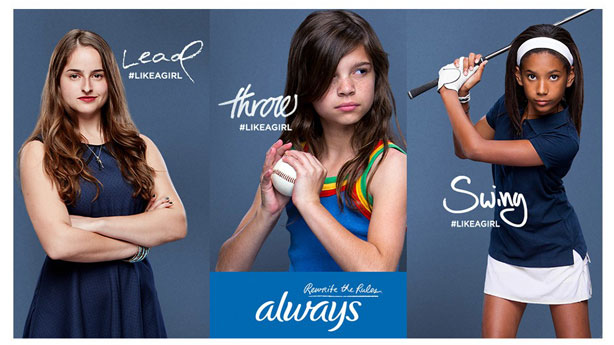Throughout time, the presentation of gender has been highly separated and depicted through two lenses: that of the stereotypical woman and man. Unrealistic images of both men and women have been plastered over various forms of media presenting an overly-feminine and masculine gaze. Media platforms have received backlash for its fostering of unrealistic views and expectations. Over time, we have slowly begun to push to a more empowering portrayal in the media which has extended beyond the two biological genders. Queer contemporary media has made its way into our modern media in forms such as ad campaigns, tv and though has-tags as exposure. Additionally, as women were once portrayed as “sexualized objects” throughout media, we have emptied them of their “political force” and reconstructed them into feelings of power. For example, the well known ad campaign by Always, “Like a Girl”, was heavily shown on various social media platforms, physical/digital magazine, and billboards. This campaign not only normalized once unspoken female necessities, but also built up a sense of confidence in women and girls. Research showed that half of girls dropped out of sports which didn’t fit the female gender-norm until this was released into new media.


I agree the role gender has in media is that it changes the thoughts of people who consume this media and that leads to new cultural biases to be formed. I believe that although the cultural biases that are formed are challenging to change that they can be changed through new media like the campaign by Always, “Like a Girl”, and their power in inspiring new ideas that challenge the flawed beliefs of the past. These changes are the only thing that will lead to growth for our societies
I definitely agree that women and girls finally feel empowered due to specific media portrayals. I also really appreciate how you talked about the ad campaign “like a girl” because I, myself, remember how transformational that ad was when first released. Media outlets have the ability to change society’s view on gender because people are constantly consuming media. I think there needs to be more representations of all genders in the media, you mentioned “extended beyond the two biological genders.” This is because once there are more representations displayed to society, then other genders will finally feel appreciated and recognized.
I agree that the development of media changes the way how people perceive and understand genders, and I love the example of “Like a Girl”. People nowadays know more about genders through media, which reduces cognitive errors about other people or about their own behavior or psychology. In the past, some people are misdiagnosed or suffer from mental illness because of their gender. New media provides a platform and resources for us to know about different genders and how to see these in the right way. Now people can decide their own beauty instead of being stereotypical men or women. Hope the new media can show more diversity and the possibility of different genders and provides a channel for people to know more about themselves.
The #likeagirl campaign is an interesting example. It seeks to subvert stereotypical gendered roles while addressing head-on the reality that female bodies differ from male bodies. Does the campaign come across as sincere? And will it do so to all audiences? I’m curious about your thoughts.